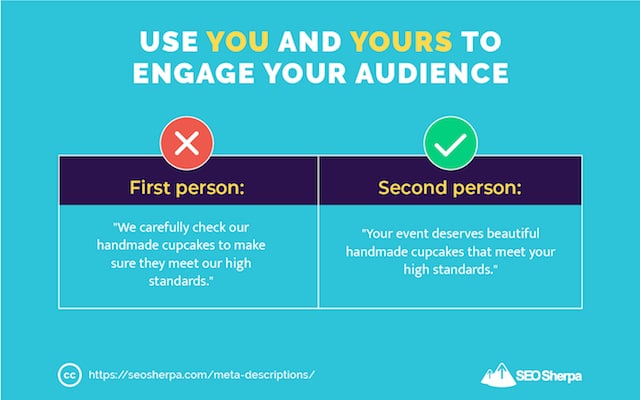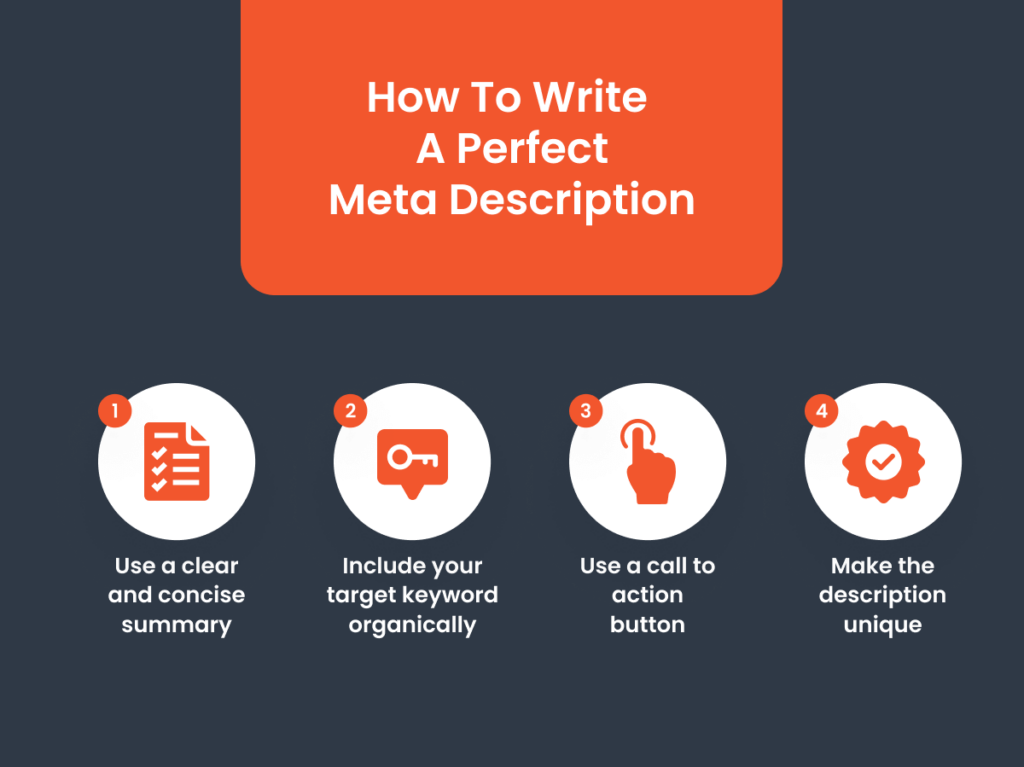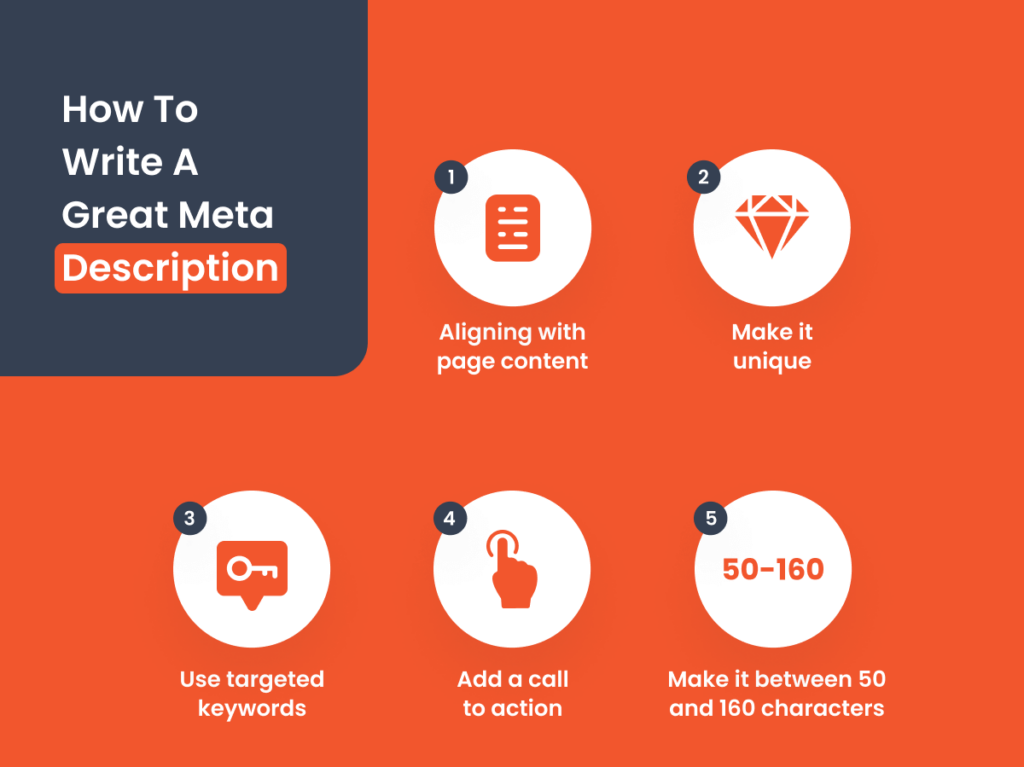Unveil the mystery of meta descriptions! Learn how these small snippets play a crucial role in grabbing attention online.

Image courtesy of via DALL-E 3
Table of Contents
Welcome, young readers! Today, we’re going to dive into the exciting world of meta descriptions and why they are super important for websites. Have you ever wondered how Google shows you the perfect results when you search for something? Well, meta descriptions play a big role in that magic! Let’s find out more about what they are and why they matter for SEO.
What is a Meta Description?
Before we get into the nitty-gritty details, let’s start with the basics. A meta description is a short snippet of text that tells people what a webpage is about. It’s like a mini preview that appears under the website link in search results. Meta descriptions are crucial because they give users a glimpse of what they can expect when they click on a link.
Why Meta Descriptions are Important
Now, you might be thinking, “Why do I need to care about meta descriptions?” Well, here’s the fun part – meta descriptions can help attract more people to click on your website! Imagine you’re looking for a new video game, and you see two search results. One has a boring description, and the other one is super exciting and makes you want to click. Which one would you choose? That’s the power of a good meta description – it can make people curious and eager to explore what’s behind that link.
Understanding Meta Descriptions
Meta Descriptions and HTML
Meta descriptions may sound technical, but they are actually quite simple. Think of them as little snippets of text that describe what a webpage is about. These snippets are hidden in the HTML code of a webpage, and search engines like Google use them to provide users with a preview of what to expect when they click on a search result.
How Search Engines Use Meta Descriptions
Search engines play a crucial role in how meta descriptions are utilized. When you type in a search query, search engines like Google scour the web for relevant pages. They use the meta descriptions to understand the content of the webpage and determine if it matches the user’s search intent. The meta description then appears below the page title in the search results, giving users a sneak peek into what the page is about.
Creating Effective Meta Descriptions
When crafting a meta description, it’s important to consider the optimal length and structure to entice users to click on your webpage. Aim for a length of around 160 characters to ensure that your description is fully displayed in search results. Structurally, make sure to include a compelling call-to-action to encourage users to engage with your content.
Using Keywords
Integrating relevant keywords into your meta description is crucial for improving your page’s visibility on search engines. Identify key phrases that resonate with your target audience and naturally incorporate them into your description. By strategically placing keywords, you can enhance the chances of your webpage appearing in relevant search results.
Engaging Language
To capture the attention of users and prompt them to click on your webpage, use engaging and action-oriented language in your meta description. Create a sense of urgency or curiosity by highlighting the unique value proposition of your content. By being informative and persuasive, you can increase the likelihood of driving traffic to your site.
Common Mistakes to Avoid
One common mistake to steer clear of when writing meta descriptions is keyword stuffing. This happens when people cram too many keywords into the meta description in an attempt to boost SEO. However, search engines frown upon this tactic as it can make the description sound unnatural and spammy. It’s important to include relevant keywords, but make sure they flow naturally within the description.

Image courtesy of seosherpa.com via Google Images
Duplicating Meta Descriptions
Another pitfall to avoid is using the same meta description for multiple pages. Each page on your website is unique and serves different purposes, so it’s important to create distinct and tailored meta descriptions for each one. Duplicating meta descriptions can confuse search engines and hinder the visibility of your pages in search results.
Being Too Vague
Avoid being too vague in your meta descriptions. Descriptions that are unclear or ambiguous can hurt your SEO efforts as users may not understand what the page is about. Make sure your meta description accurately reflects the content of the page and entices users to click through. Being specific and informative can help improve the visibility of your website in search results.
The Impact on Search Engine Optimization (SEO)
When you search for something on Google, the results you see have a brief description underneath the link. This is the meta description. A well-crafted meta description that accurately reflects the content of the page can increase the chances of someone clicking on your website. Think of it as a sneak peek that entices people to click and learn more.
Better User Experience
A good meta description not only helps your website rank higher on search engines but also provides users with a clear idea of what to expect when they click on your link. Users appreciate information that is relevant and matches their search intent. By crafting descriptive and engaging meta descriptions, you are enhancing the overall user experience and setting the right expectations for visitors to your site.
Tools to Help Create Meta Descriptions
Meta description generators are online tools that can assist in creating effective and compelling meta descriptions for your web pages. These tools analyze the content of your page and suggest suitable descriptions that are optimized for SEO and user engagement. By using these generators, you can save time and ensure that your meta descriptions meet the best practices for search engine optimization.

Image courtesy of appsalon.com.au via Google Images
SEO Plugins for Meta Descriptions
Another helpful tool for crafting meta descriptions is SEO plugins. These plugins integrate with your content management system (CMS) and provide features that help optimize your meta tags. They offer suggestions for improving your meta descriptions, ensuring they contain relevant keywords, meet length requirements, and are written in an engaging manner. SEO plugins can streamline the process of creating meta descriptions and enhance the overall SEO performance of your website.
Real-World Examples
Let’s take a look at a real-world example to see how a well-crafted meta description can impact search results. Imagine you’re searching for a recipe for chocolate chip cookies. You come across two search results:
Result 1: “Delicious chocolate chip cookies – The best recipe for your sweet cravings! Try it now.”
Result 2: “Cookie recipe – Chocolate chip cookies to satisfy your sweet tooth. Easy and tasty!”
In this case, the first result stands out with its descriptive language and a clear call to action. It entices users to click by highlighting the deliciousness of the cookies and inviting them to try the recipe. The second result, although informative, lacks the engaging elements that make the first one more appealing.
Learning from Success
From this example, we can learn the following tips for crafting successful meta descriptions:
- Use descriptive language to entice users
- Include a clear call to action to prompt clicks
- Highlight the main benefits or features of your content
- Avoid being too vague or generic in your descriptions
By analyzing successful examples like this, you can gain insights into what works well and apply these principles to your own meta descriptions to improve their effectiveness in attracting users to your website.
Summary
Throughout this article, we’ve explored the world of meta descriptions and why they play a crucial role in boosting your website’s visibility on search engines. Let’s recap the key points we’ve covered:

Image courtesy of appsalon.com.au via Google Images
What is a Meta Description?
We began by defining what a meta description is – a brief snippet of text that summarizes a web page’s content and is displayed on search engine results pages. These descriptions help users decide whether or not to click on your link.
Why Meta Descriptions are Important
We then delved into why these meta descriptions matter. They serve as a crucial element for SEO, influencing how your website ranks in search results. A compelling meta description can attract more clicks and increase web traffic to your site.
Understanding Meta Descriptions
Exploring the technical side, we looked at how meta descriptions work with HTML code and how search engines like Google use them to generate snippets that users see in search results.
Creating Effective Meta Descriptions
We provided guidance on crafting effective meta descriptions by considering length, structure, the use of keywords, and the importance of engaging language to entice users to click on your link.
Common Mistakes to Avoid
We highlighted common mistakes to steer clear of, such as keyword stuffing, duplicating meta descriptions, and being too vague, all of which can negatively impact your SEO efforts.
The Impact on Search Engine Optimization (SEO)
Detailing how optimized meta descriptions can improve click-through rates and user experience, ultimately contributing to better SEO performance and higher rankings in search results.
Tools to Help Create Meta Descriptions
We recommended various tools and plugins that can assist you in creating compelling meta descriptions, such as meta description generators and SEO plugins.
Real-World Examples
We showcased successful examples of well-crafted meta descriptions and discussed what makes them effective, providing insights that you can apply to your own meta descriptions.
In conclusion, mastering the art of crafting engaging and optimized meta descriptions is essential for enhancing your website’s visibility and driving more traffic. By incorporating the tips and techniques outlined in this article, you can improve your SEO performance and attract more visitors to your site.
Want to turn these SEO insights into real results? Seorocket is an all-in-one AI SEO solution that uses the power of AI to analyze your competition and craft high-ranking content.
Seorocket offers a suite of powerful tools, including a Keyword Researcher to find the most profitable keywords, an AI Writer to generate unique and Google-friendly content, and an Automatic Publisher to schedule and publish your content directly to your website. Plus, you’ll get real-time performance tracking so you can see exactly what’s working and make adjustments as needed.
Stop just reading about SEO – take action with Seorocket and skyrocket your search rankings today. Sign up for a free trial and see the difference Seorocket can make for your website!
FAQs
What if I don’t write a meta description?
When you don’t write a meta description for your web page, search engines might automatically generate a snippet of text from your content to display in search results. This snippet may not always accurately represent your page’s content and may not be as enticing to users as a well-crafted meta description. So, it’s best to write your own meta description to ensure that search engines display the most relevant and compelling information about your page.
How often should I update my meta descriptions?
It’s a good practice to review and update your meta descriptions periodically, especially if there have been significant changes to your content or if you notice a drop in click-through rates. By keeping your meta descriptions up-to-date and aligned with your current content, you can make sure that users are getting an accurate preview of what your page has to offer.
Can meta descriptions alone improve my SEO?
While well-written meta descriptions can certainly contribute to a better user experience and potentially increase click-through rates, they are just one part of a comprehensive SEO strategy. To improve your overall SEO performance, you should focus on a range of factors such as quality content, relevant keywords, mobile-friendliness, and user engagement. So, while meta descriptions play a role in attracting users to your site, they work best when combined with other SEO best practices.







